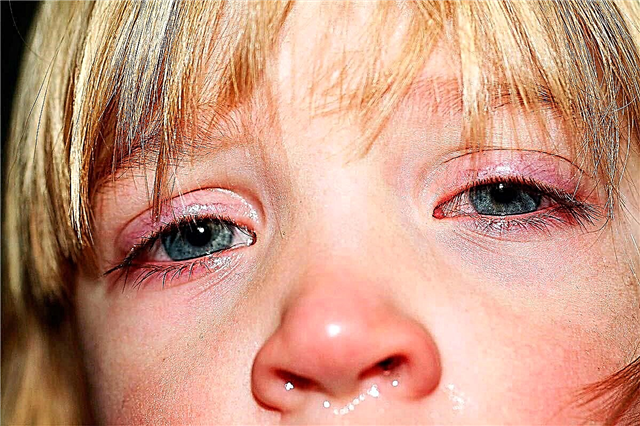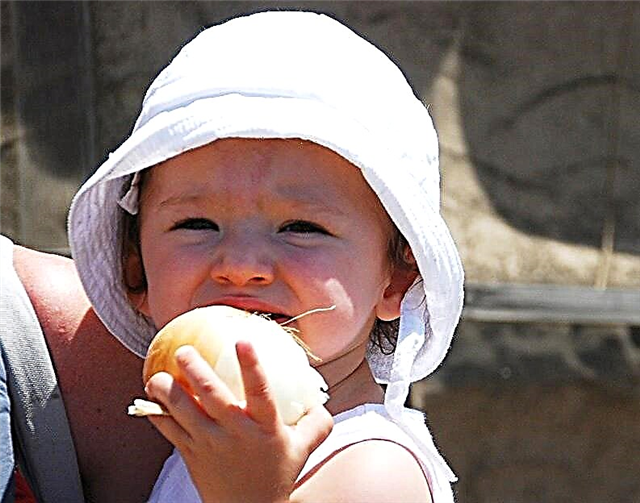
Very often you can hear from parents the statement that their child has weak immunity. Some even use a clever medical word - immunodeficiency - to describe the pain and weakness of their own children. But in the vast majority of cases, the truth has nothing to do with immunodeficiency, since it is - always a serious condition that requires special treatment.

What it is?
Immunity is given to the human body as the greatest gift - it allows it to independently, without the help of doctors and drugs, cope with many diseases. As soon as a foreign object enters the body, the immune system throws “scouts” towards it - cells that copy the structures of the invader, examine his weak points, destroy him, and then “train” whole detachments of immune cells to fight against such pathogens. So, in simple terms, antibodies are formed. For example, a child has had chickenpox. Immunity remembered the causative agent of the disease and formed lifelong immunity - no more child will get sick with this disease. Some other diseases develop temporary immunity.
The child acquires immunity in the womb - it is called congenital. Receiving nutrition from the mother's blood, the baby receives from the mother and many immune antibodies. But such immunity remains in a newborn only a few months after birth. He protects him when he needs it most. Then the child's own immunity must begin to "learn", and therefore in childhood diseases there are not only disadvantages, but also undoubted advantages - they temper the child's immune defense.
Immunodeficiency is a condition when the body's defense mechanisms are not working properly, individual links of immunity are impaired... In most cases, this is a congenital problem caused by genetics. As you can imagine, true immunodeficiency has nothing to do with a frequently ill child.


In a state of immunodeficiency, a child is really very vulnerable to any foreign organisms, be it bacteria, virus or fungus. Where a healthy baby only gets a runny nose and a cough, a child with immunodeficiency may die, since his immunity is not able to produce the necessary "trained" antibodies in time and in the right amount.
Immunodeficiency is primary and secondary.
- Primary - a congenital condition, often caused by genes. Mutations of certain genes lead to the fact that the links of the immune system are not formed or are formed with errors. It is formed during the period of intrauterine development under the influence of gene mutations, due to teratogenic effects, due to unexplored reasons. Fortunately, such conditions are rare - in one baby per 10 thousand newborns.
- Secondary - an acquired form that can develop against a background of blood diseases, metabolic disorders, severe infectious diseases, surgical operations.

Hereditary forms (genetic) of immunodeficiency are almost not amenable to correction and cure. The child is on drug support all his life. The acquired forms are subject to correction.
Causes
Primary immunodeficiencies are usually associated with low activity or deficiency of T lymphocytes. The reasons for this behavior of immune cells may lie in the dysfunction of the thymus, a violation of the production of enzymes. There are several diseases in this group. Humoral are associated with a lack of B-lymphocytes, impaired immunoglobulin production (Bruton's syndrome, West). Combined primary disorders of immunity are associated with low activity of immune cells and humoral links (Glanzmann-Riniker syndrome, Louis-Bar disease).
Phagocytic primary states are associated with low activity of monocytes and granulocytes. This includes the so-called lazy leukocyte syndrome and Kostman's neutropenia. And primary protein deficiency states are associated with a mutation of genes that encode the production of certain proteins necessary for the immune system to function.
A wide variety of etiological factors, both external and internal, can lead to a pronounced and persistent decrease in the body's immune defense.


Secondary immunodeficiency often develops with a general depletion of the body. Prolonged malnutrition with a deficiency in the diet of protein, fatty acids, vitamins and minerals, impaired absorption and breakdown of nutrients in the digestive tract lead to disruption of the maturation of lymphocytes and reduce the body's resistance.
The causes of secondary deficiency states of immunity in children are numerous. Pathologies of the musculoskeletal system and internal organs, burns, large blood loss, whatever it may be associated with, can provoke a pathological decrease in the body's natural defenses.
Chronic viral diseases (HIV, cytomegaly, rubella, hepatitis) destroy the links of immunity both at the cellular and humoral levels. Less destructive, but no less dangerous are fungal, bacterial and parasitic diseases.
With diseases of the kidneys, liver, endocrine diseases, the activity of phagocytes decreases, which also leads to an immunodeficiency state.
If a child takes medications for a long time that affect the state of the bone marrow and the processes of production of blood cells (cytostatics, glucocorticoid drugs), the activity of lymphocytes decreases. Radiation works in much the same way.
If a child has a malignant tumor, then it is independently capable of producing cytocoins, which reduces the number of T-lymphocytes and inhibits the activity of phagocytes.


And even severe stress, a long stay in an environment of severe physical or emotional overload can have an impact on the links of the immune system - they begin to suffer.
Symptoms and signs
Immunity deficiency, if it is of a primary nature, can be bright, or it can be latent for a long time. Often, the primary lack of immunity is manifested by concomitant malformations, tumors, and frequent dermatological problems, which allows doctors to suspect anomalies in the natural defenses of the child's body.
At the same time, certain patterns were noticed:
- with primary cellular immunity, the child is more susceptible to viral and fungal diseases, they are difficult for him, with complications, often recur (such children have an increased risk of cancerous tumors and lymphomas);
- with a primary humoral deficiency in a child, bacterial diseases - pneumonia, pustular skin diseases are more often exacerbated;
- with primary phagocytic deficiency in children, bacterial infections are also more likely to occur.

Secondary deficiency states of immunity are manifested by protracted chronic infections that are difficult to cure. Children often have exacerbation of upper respiratory ailments, gastrointestinal problems, allergic reactions, even in the absence of an obvious allergen.

A child may have an elevated low-grade body temperature, pain in joints for a long time, while medications usually do not have the desired effect.
Diagnostics and treatment
Diagnosis and treatment of conditions of immunity deficiency in children is carried out by pediatricians, immunologists. Usually, the first to guess about the condition is the pediatrician, to whom the baby's parents turn too often about inflammation, viral and other ailments in the child. In this case, the doctor recommends doing tests and visiting an immunologist.
A general examination includes an assessment of the condition of the skin, the child's mouth, the presence or absence of edema. Laboratory diagnostics gives maximum information about the state of the immune defense: in the general blood test, the child's leukocyte formula is disturbed, there are numerous anomalies. A biochemical blood test shows the presence of unusual metabolites.
Special immunological tests can reveal activated leukocytes, phagocytes, the amount of immunoglobulins, and a selective lack of immunoglobulins. If a primary genetic deficiency is suspected, prescribe molecular genetic analysis, which allows you to establish the fact of mutations of certain genes.


Treatment depends on the form of immunodeficiency.
- Primary... Often, medicine cannot offer anything essential to get rid of the gross forms of congenital immunodeficiency. Patients die from complications of infectious diseases. In some cases, bone marrow transplantation helps to cope with the problem. Patients with a lack of immunoglobulin factors are injected with such drugs artificially, and the therapy is lifelong. Vaccination is often contraindicated in children. Vaccinations are not only dangerous, but also completely useless - the introduction of a vaccine does not form the proper immunity against the disease from which it is being done.


Mild forms do not require significant treatment. Children are advised only to diligently avoid contact with infections, hypothermia, and at the first signs of the onset of the disease, to carry out special replacement therapy, which is prescribed by an immunologist.
- Secondary. Immunodeficiency states of a secondary nature are easier to correct, but the effectiveness of treatment depends on how timely the doctors were able to determine the condition and establish its causes. It is important to eliminate all foci of infection in the body, and therefore the child is shown complex treatment - at the dentist, gastroenterologist, urologist and other specialists, depending on the established cause. Clinical guidelines allow the use of antibiotics, an adequate antiviral treatment regimen, and the use of interferons. Parents need to reconsider the child's diet - it must be balanced, it must combine proteins, fats and carbohydrates in the right way, it must be saturated with vitamins and minerals.
Metabolic disorders may require hormone therapy. Tumors often require surgical treatment. For children with such immunodeficiency, it is recommended to be vaccinated with an active vaccine. This is very important for the restoration of normal immune status. They can carry out exchange transfusions of blood and donor plasma.


Experts are confident that the right treatment for secondary lack of immunity allows us to speak of a favorable prognosis for the future.
Prevention
Given that it is very, very difficult to predict genetic factors, there is no specific prevention of primary immunodeficiency. It's like a lottery - someone's out of luck anyway. But it is possible to reduce the likelihood by eliminating the teratogenic effect on the fetus during pregnancy. An expectant mother does not need to take medicines without a doctor's recommendation, contact with poisons, toxins, chemicals, paints, varnishes, especially in the first trimester of pregnancy, should be avoided. It is imperative to visit a doctor in the antenatal clinic and take all the necessary tests on time.
Secondary immunodeficiencies are multifactorial, and therefore their prevention should consist in protecting the child from possible influence of influencing factors. After birth, breastfeeding creates a fertile ground for healthy immunity. - the child receives many of the necessary antibodies with the mother's milk.


For what immunodeficiency is, see the next video.



